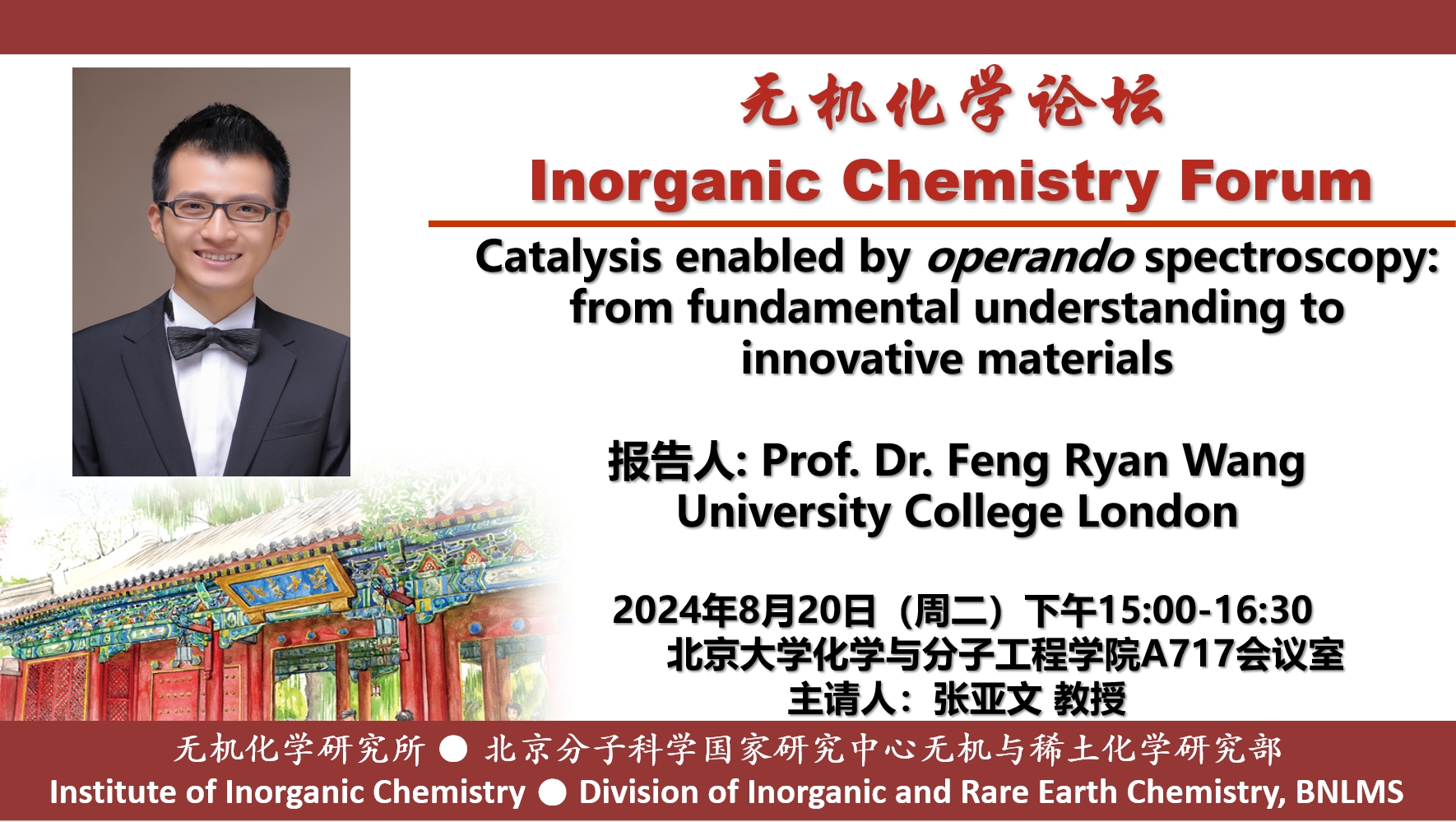
Abstract
Heterogeneous catalysis is of prominent importance for modern society. For example, the Fe catalysed NH3 synthesis process provides nitrogen fertilizers that lead to food production for at least half of the world’s population. It is even more important in the circular economy, providing process solutions for future energy conversion, fuel production, and waste recycling. Yet the understanding of reaction mechanisms is still limited due to the complexity of surface catalytic systems and the lack of characterization methods to directly observe surface process under working conditions.
In this talk, I will introduce new experimental designs to utilize synchrotron X-rays and X-ray free electron laser-based operando spectroscopy to identify active centres and rate determine steps, which leads to the development and synthesis of novel materials that have significantly improved catalytic performance. I will present recent method development in my group:
1.Determination of surface O and active species via △XANES technique
2.Rate determination in half-reactions with quick time-resolved X-ray spectroscopy for identification of rate determining step in redox catalysis.
3.Measuring dynamics of elementary electron transfer from support to metal active site at fs to ps time scale, help to shoot the molecular movie of a single catalytic process.
With these first-time observations, we have been able to develop new catalysts with 5-100 times better performances than those in existing reports for emission control, H2 production, and fuel cell applications. Our new operando X-ray methods have been used beyond catalysis to energy storage and conversion systems. Such innovation has great potential in wide engineering applications.
References:
1)L. Q. Kang, et al., Nat. Commun. 2020, 11, 4008.
2)X. Z. Guan, et al., ACS Catal. 2022, 12, 15207-15217.
3)L. Q. Kang, et al., Angew. Chem. Int. Ed. 2021, 60, 14420-14428.
4)R. Y. Xu, et al., J. Catal. 2022, 416, 311-321.
5)L. L. Zhou, et al., J. Am. Chem. Soc. 2023, 145, 2252-2263
Biography
Dr. Feng Ryan Wang is an associate professor at the chemical engineering department of UCL. He obtained his PhD in Chemistry at Peking University in 2012. He was an Alexander von Humboldt Research Fellow at the Max-Planck Institute für Kohlenforschung between 2013 and 2015. His research mainly focuses on using operando X-ray techniques to understand complex chemical systems in catalysis and energy storage. He has been awarded the Young Scientist Prize of the 16th International Congress of catalysis. He is now serving the EPSRC strategic advisory team on capital equipment, EPSRC high level group of National Research Facility and the Early Career Advisory Board of ChemCatChem and the net-zero committee of UK catalysis hub. Through those roles, he has influenced the government funding decisions in large facilities including Diamond II, ISIS II and UK XFEL.